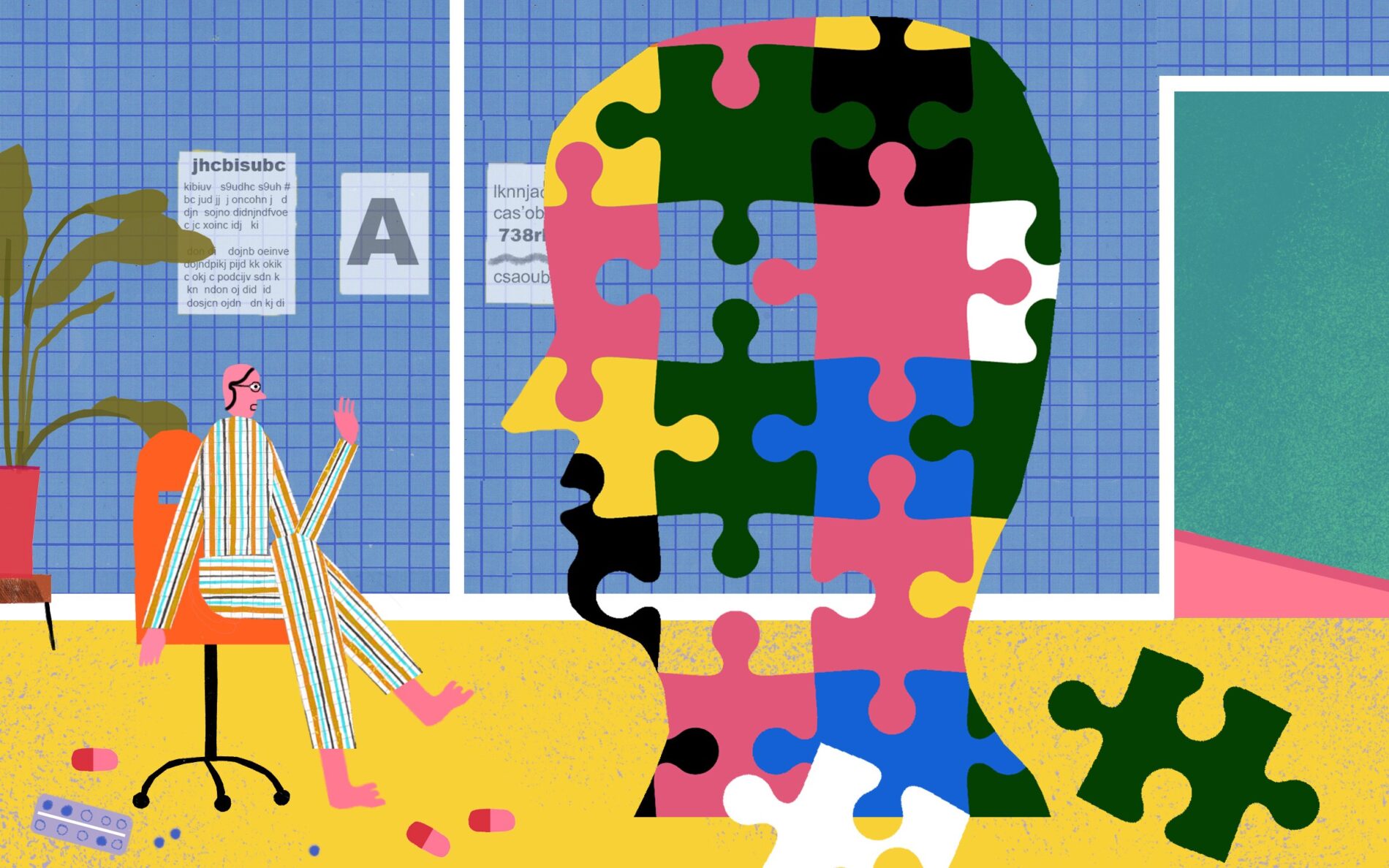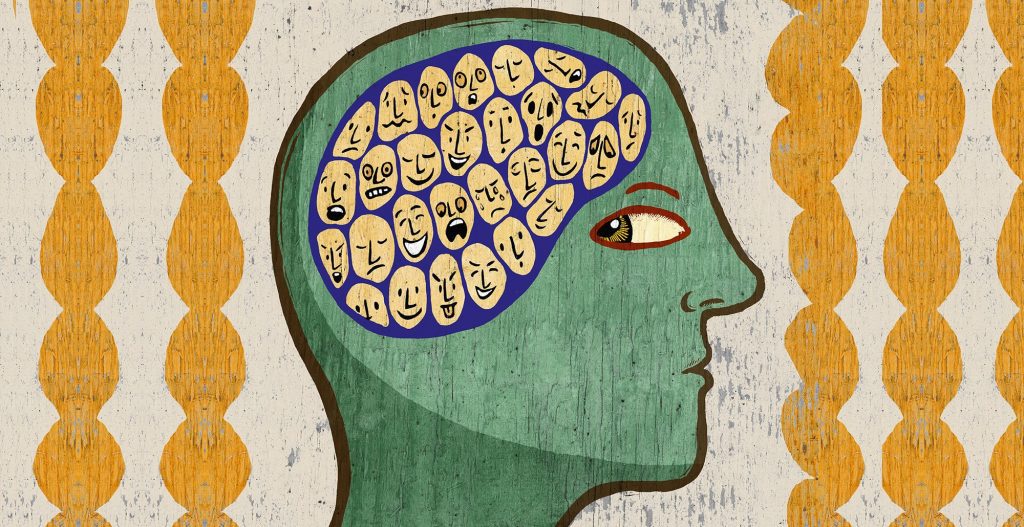What is Internal family systems therapy? This form of therapy seeks to identify the different parts of your personality and involve them in the treatment process. For example, there might be a party that wants to change while another party resists. The therapist will help you explore these different parts so they can agree on what needs to happen for real changes to take place.
Contents
What Is Internal Family Systems Therapy?
 Internal family systems therapy (IFS) is a form of psychotherapy that helps people understand how each person in the inner family system has their own feelings, thoughts, and behaviors. This method can be very effective for healing childhood wounds and other emotional issues. IFS also works well when trying to overcome relational or career challenges. It allows you to recognize your strengths and weaknesses and heal internal conflicts with love and self-acceptance rather than criticism from others outside the circle of the self.
Internal family systems therapy (IFS) is a form of psychotherapy that helps people understand how each person in the inner family system has their own feelings, thoughts, and behaviors. This method can be very effective for healing childhood wounds and other emotional issues. IFS also works well when trying to overcome relational or career challenges. It allows you to recognize your strengths and weaknesses and heal internal conflicts with love and self-acceptance rather than criticism from others outside the circle of the self.
The premise behind IFS is that you are all made up of different parts which manifest as qualities such as strength, sadness, joy, etc… These parts exist within you at all times, much like our cells constantly regenerate themselves but continue to remain part of who you are. IFS therapy uses various techniques to help people identify their parts and understand the role they play in current challenges or obstacles, as well as how these parts affect other members of your inner family system.
History of Internal Family Systems Therapy

The history of internal family systems therapy is rooted in the work of psychiatrist, Carl Jung. According to John Rowan Ph.D., “Jung’s idea that people consist of different parts was not new; it can be traced back at least as far as Empedocles (circa 450 BC), and has been implicit in many subsequent psychological theories.” Gurdjieff also proposed thoughts on this topic which later influenced psychologist Roberto Assagioli who developed psychosynthesis around 1912. In short, internal family system theory existed before its formal development by Richard Schwartz in 1990 while he worked for a company called Synergetic Press.
After this time, IFS began to be used in different settings with various populations. In 1992, Schwartz and his colleagues published a paper on the use of IFS in an inpatient psychiatric setting which showed promising results. Since then, research has been conducted on the efficacy of IFS with different groups including substance abusers, cancer patients, veterans with PTSD, and more.
Working of Internal Family Systems Therapy

This therapy works in part by helping people become aware of their parts. Rather than simply seeing the existence of these internal conflicts, IFS helps to identify and understand each part’s perspective on conflict within your system. The ultimate goal is not necessarily to create harmony between all members of this inner family; but rather acknowledge that there are different perspectives without criticism or judgment toward others in your circle.
Role Of Parts/Parts Roles
When exploring certain aspects of yourself through therapy like IFS it can be helpful to think about what role you play inside your own emotional experiences. For example, if someone were dealing with feelings surrounding loss they might consider where sadness may exist internally as well as how strong self-esteem acts when feeling down about themselves after a difficult experience such as losing a loved one. From there, it may be possible to understand how other parts might contribute differently in this situation and what role they play when working together as a system.
Inner Critic
One of the most common parts that people become aware of during IFS therapy is what Schwartz calls the “inner critic.” This part is often very judgmental and critical of others as well as oneself. It can be helpful to explore where this voice comes from, its purpose, and how it’s affecting your life negatively. Oftentimes, the inner critic was created during childhood as a way to deal with difficult situations or emotional pain. Unfortunately, this voice often persists into adulthood and can damage our relationships, self-esteem, and more.
Assumptions of Internal Family Systems Therapy

These are some of the assumptions of internal family systems therapy:
- That people consist of different parts
- That these parts exist in a hierarchy with some more powerful than others
- That all parts have valuable contributions to make
- That it is possible to understand the perspective of each part
- That there is no one right way to approach challenges or conflicts within the system
Benefits of Internal Family Systems Therapy
Benefits of IFS therapy may include:
Increases Self-Awareness
This therapy can be a great way to increase self-awareness and insight into your inner world.
Helps People Understand Each Other’s Emotions
 IFS can help people understand each other better by exploring the different roles that parts play within an emotional conflict or issue. This may lead to more understanding and empathy which can create positive change as well as relationships with others.
IFS can help people understand each other better by exploring the different roles that parts play within an emotional conflict or issue. This may lead to more understanding and empathy which can create positive change as well as relationships with others.
Helps With Self-Acceptance
 By becoming aware of our different parts, we come to accept those things about ourselves that might not seem perfect all the time; but are still part of who we are as individuals. It is important during IFS therapy sessions for clients (and therapists) to remain nonjudgmental and compassionate toward these internal experiences even if they don’t seem desirable.
By becoming aware of our different parts, we come to accept those things about ourselves that might not seem perfect all the time; but are still part of who we are as individuals. It is important during IFS therapy sessions for clients (and therapists) to remain nonjudgmental and compassionate toward these internal experiences even if they don’t seem desirable.
Promotes Problem-Solving
 The exploration of conflicting parts within a system can help to identify potential solutions to problems. These problems may have been difficult to solve in the past. This is because it allows for different perspectives to be considered which might not have been apparent before.
The exploration of conflicting parts within a system can help to identify potential solutions to problems. These problems may have been difficult to solve in the past. This is because it allows for different perspectives to be considered which might not have been apparent before.
Reduces Stress and Anxiety
 IFS has been shown to reduce stress and anxiety levels in many people who partake in this type of therapy. It is thought that this may be due to the increased self-awareness and understanding. It may come as a result of exploring internal conflicts with the help of a therapist.
IFS has been shown to reduce stress and anxiety levels in many people who partake in this type of therapy. It is thought that this may be due to the increased self-awareness and understanding. It may come as a result of exploring internal conflicts with the help of a therapist.
Enhances Relationship Skills
 This therapy can help people become more aware of their own and others’ emotions. This helps with developing better communication skills and understanding how to work together as a system. This is in order to improve relationships or solve conflicts.
This therapy can help people become more aware of their own and others’ emotions. This helps with developing better communication skills and understanding how to work together as a system. This is in order to improve relationships or solve conflicts.
Helps Address Trauma and PTSD Symptoms
 This therapy can very helpful for those who are dealing with posttraumatic stress disorder (PTSD) or traumatic experiences. This is because it helps address the root of why certain parts exist. It also helps to understand how they contribute to difficulties experienced in day-to-day life after a difficult situation has occurred.
This therapy can very helpful for those who are dealing with posttraumatic stress disorder (PTSD) or traumatic experiences. This is because it helps address the root of why certain parts exist. It also helps to understand how they contribute to difficulties experienced in day-to-day life after a difficult situation has occurred.
Helps To Build Resilience
 Resilience refers to the ability to bounce back after experiencing a difficult situation. IFS can also help people build resilience and overcome life challenges more easily. This is by allowing them an opportunity for self-reflection, exploration of internal conflicts It also helps in the understanding of inner parts. These may be contributing negatively or positively toward their lives as a whole system.
Resilience refers to the ability to bounce back after experiencing a difficult situation. IFS can also help people build resilience and overcome life challenges more easily. This is by allowing them an opportunity for self-reflection, exploration of internal conflicts It also helps in the understanding of inner parts. These may be contributing negatively or positively toward their lives as a whole system.
Disadvantages of Internal Family Systems Therapy
There are many disadvantages of Internal Family Systems Therapy:
- The therapy can be expensive.
- It can be time-consuming.
- It can be difficult to find a therapist who practices IFS.
- Not all therapists are familiar with IFS.
- The therapy may not be appropriate for everyone.
- There is no research to support the efficacy of IFS.
- Insurance companies do not typically reimburse for IFS therapy.
Conclusion
In conclusion, internal family systems therapy is a helpful approach. This is for exploring the different parts of ourselves. It also helps in understanding how they contribute to our lives and relationships. This helps to analyze how to reduce stress and anxiety. This type of therapy can be beneficial for people who are struggling with PTSD or traumatic experiences. It can also help those who want to become more resilient in the face of difficult situations. If you want to learn more about this type of therapy, please speak with your therapist or contact a local IFS practitioner.
If you are looking for affordable Online Counseling MantraCare can help: Book a trial therapy session


